- Scott Butterly
- Danacord
- Fyador Chaliapin
- Psappha
- James Farmer
- Brandon Patrick George
- Nicole Ansari-Cox
- Ayanna Woods
 DISCUSSION: What is a work? John Dante Prevedini leads a discussion about The performing artist as co-creator, including contributions from Halida Dinova, Yekaterina Lebedeva, Béla Hartmann, David Arditti and Stephen Francis Vasta.
DISCUSSION: What is a work? John Dante Prevedini leads a discussion about The performing artist as co-creator, including contributions from Halida Dinova, Yekaterina Lebedeva, Béla Hartmann, David Arditti and Stephen Francis Vasta.
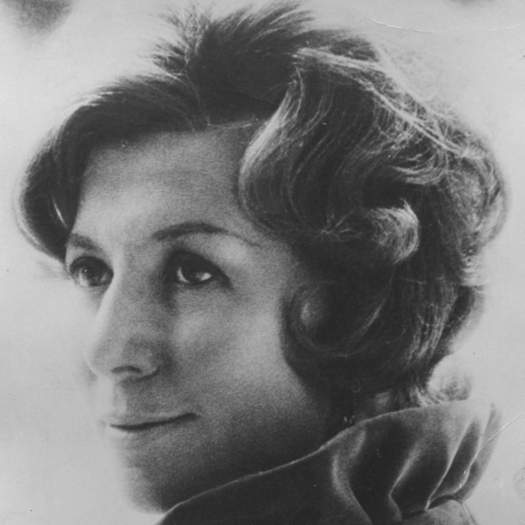 SPONSORED: Think of Something Beautiful - Malcolm Miller pays tribute to contralto Sybil Michelow (1925-2013).
SPONSORED: Think of Something Beautiful - Malcolm Miller pays tribute to contralto Sybil Michelow (1925-2013).
All sponsored features >>
Backwards and Forwards
MIKE WHEELER rounds up his coverage of the 2021 Buxton Festival with concerts by Sarah Connoly, Roderick Williams and Natalie Clein
How do you perform Robert Schumann's song-cycle Frauenliebe und Leben today, given the huge changes in social and gender-related attitudes since it was written? The woman speaking through Adelbert von Chamisso's poems can seem unduly submissive to us now, but is there scope for any #MeToo-era gloss on what she is telling us?
Sarah Connolly and Joseph Middleton played it straight, allowing the songs to speak for themselves and listeners to make up their own minds – Buxton Opera House, Buxton, UK, 16 July 2021.
So in the first song they pictured a young girl lost and bewildered in a love-affair she could scarcely have imagined, turning breathless with excitement in the third. The reverence with which she contemplated her ring became eager anticipation as she called on her sisters to help her get ready for her wedding-day, with Joseph Middleton's finely-shaded fade-out at the end. There was a playful moment amid the stillness as she communed with her new-born child, and her response to widowhood in the final song was deeply involving; Middleton, again, brought out all the sadness of the extended piano postlude.
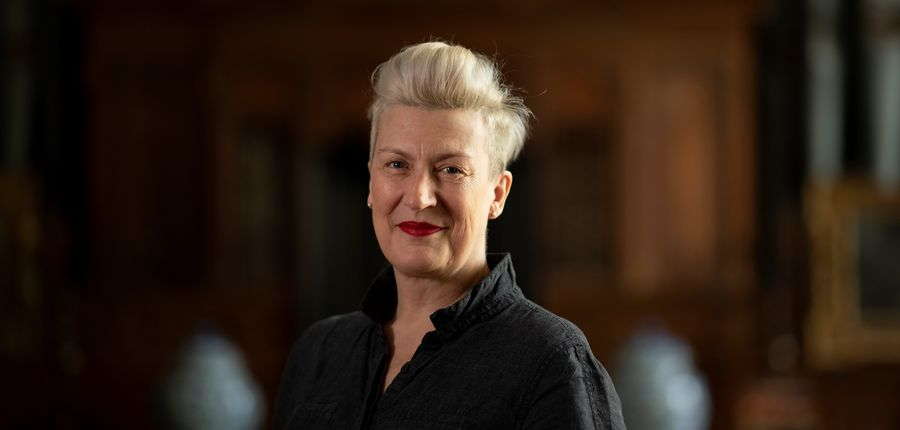
Sarah Connolly. Photo © Christopher Pledger
From there it was quite a step into the world of Poulenc's Banalités, or worlds, rather, given such a heterogeneous group of songs. The lively story-telling of 'Chansons d’Orkenise' contrasted with the languor of 'Hôtel'. There was a bubbly energy in 'Fagnes de Wallonies', buoyant good humour and fluttering eagerness in 'Voyage à Paris', and a pervading sadness in 'Sanglots', as Poulenc consciously undercut the cycle's overall title with a meditation on emotional fragility.
A Duparc group began with 'Chanson triste', a hopeful song rather than sad, in spite of the title. 'Au pays où se fait la guerre', on the other hand, really is a sad song. The agitation at what might have been the absent lover's footsteps on the stairs was vivid, followed by crushing disappointment at the realisation that it was the servant come to light the lamp. The drowsy mood of 'Extase' was followed by the enticements of 'L'invitation au voyage', Middleton conjuring up a veritable heat-haze at the piano. In 'Testament', singer and pianist laid bare an unhappy lover's agitation.
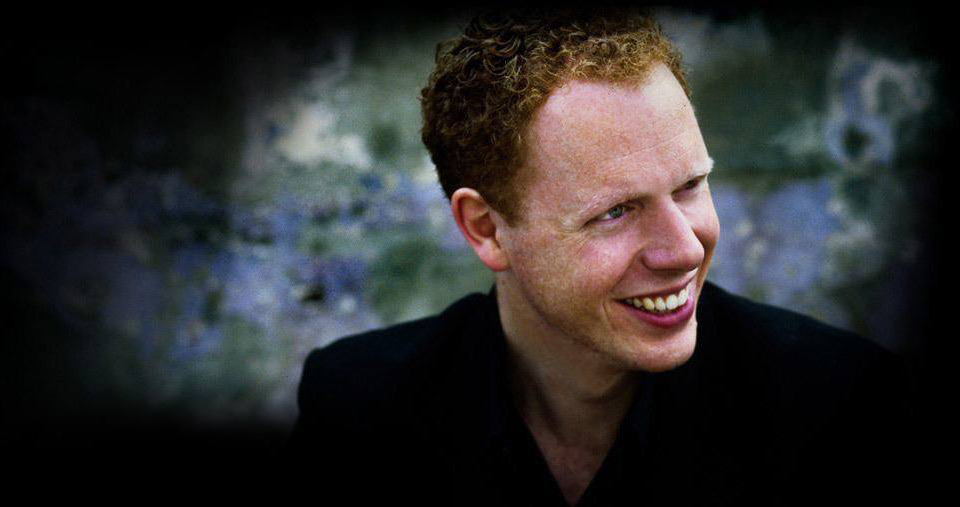
Joseph Middleton
Performers rarely follow the published order of Mahler's Rückert Lieder, but placing the two big songs, 'Um Mitternacht' and 'Ich bin der Welt abhanden gekommen' back-to-back at the end unbalanced the emotional arc of the group as a whole. There was, though, plenty to enjoy in the individual performances – gentle tranquillity in 'Ich atmet' eine linden Duft!', and the light-hearted reprimand to anyone seeing work not ready for public show in 'Blicke mir nicht in die Lieder!', with Middleton keeping the piano textures busy - Mahler's representation of Rückert's bees working away in secret. In 'Liebst du um Schönheit', the whimsicality of the first three verses was followed by a distinct shift of emphasis to the greater emotional depth of the fourth. Connolly and Middleton brought profound introspection to 'Um Mitternacht', and were totally absorbed in the inner world of 'Ich bin der Welt abhanden gekommen’.
I would have been perfectly happy without an encore after that, but Herbert Howells' 'King David' was a choice as intelligent as it was unexpected. The interaction between the king's melancholy and the nightingale's song was almost Mahlerian in its way.
Roderick Williams and Susie Allan don't just perform a song, they inhabit it, drawing you into their confidence. In particular, Williams' conversational manner was very much in evidence in George Butterworth's Six songs from A Shropshire Lad. Occasionally he directly addressed individual members of the audience – St John's Church, Buxton, UK, 17 July 2021.
'Loveliest of trees' oozed quality from the singer and pianist's very first notes. In 'When I was one and twenty', the final “Oh, 'tis true” was all the more heartbreaking for being understated. 'Look not in my eyes' ached with unspoken grief, in contrast to the bravado trying to make light of churned-up emotions in 'Think no more, lad'. The off-hand, easy familiarity of 'The lads in their hundreds' is precisely what gives it its poignancy, which would be undermined by making a big climax at 'The lads that will die in their glory...' in the final verse. It nearly happened on this occasion, but fortunately it was kept on a tight rein. Finally, in 'Is my team ploughing?', Williams' bleached, numb tone for the dead man's side of the conversation was spooky without being melodramatic.
'Summer Schemes', the first of three John Ireland songs, saw Williams and Allen delineating the contrast between the confidence and the doubt of Thomas Hardy's poem. 'Sea Fever' captured all the yearning of John Masefield's poem, and there was plenty of conviviality in another Hardy setting, 'Great Things'.
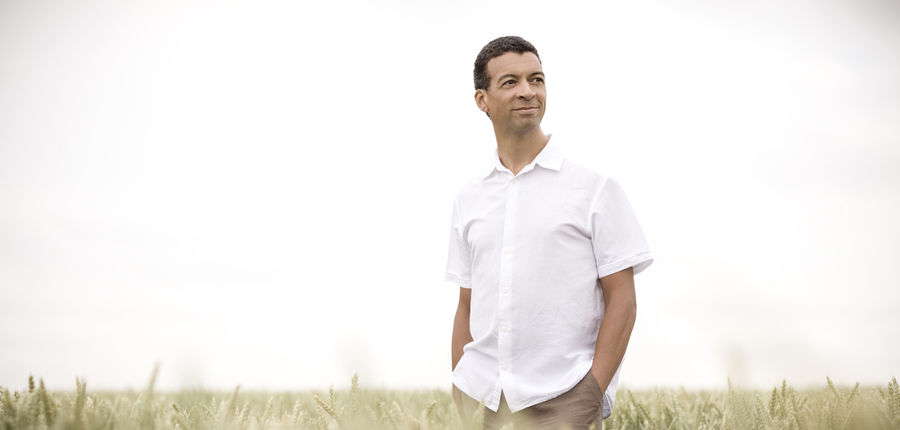
Roderick Williams
Four songs by Ivor Gurney followed. 'Desire in Spring' and 'Walking Song' both had a robust air of defiance, looking forwards to the Vaughan Williams to come later. Williams and Allen's account of 'Severn Meadows' was deeply thoughtful in its unpacking of the paradoxes of Gurney's homesickness in the trenches of World War 1. Peter Warlock's setting of 'Captain Stratton’s Fancy' may be better-known but this performance of Gurney's was equally good and hearty.
Vaughan Williams takes to the open road with poet Robert Louis Stevenson in Songs of Travel, which rightly has a central place in the English song repertoire. 'The vagabond' set off with no exaggerated heartiness or false heroics. 'The roadside fire' is a warm celebration of companionship, helped by Allen's light touch in the pattering piano part (Vaughan Williams has never been particularly admired for his piano music, but the piano writing in Songs of Travel is well worth paying attention to). The radiance of 'Youth and love' was similarly vivid.
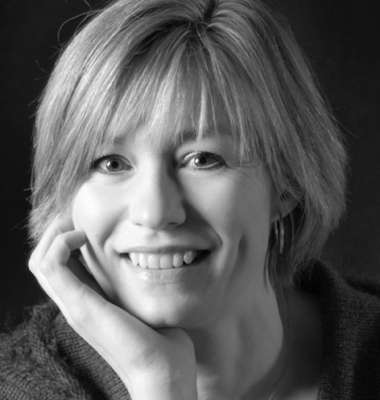
Susie Allan. Photo © Simon Denison
'In dreams' is marked by the kind of chromatic language Vaughan Williams was leaving behind, but for Williams and Allen it was the key to the poem's introspection. They responded to the blessedness of 'The infinite shining heavens', and in 'Whither must I wander?' captured the dual nature of a song that looks both backwards and forwards, nostalgic but acknowledging the need to move on. The mixture of the robust and the gentle that characterises 'Bright is the ring of words' was strongly projected, and in the concluding 'I have trod the upward and the downward slope' singer and pianist firmly conveyed the idea of the traveller looking back with no regrets.
Two of Britten's folksong arrangements followed. The romantic disillusion of 'The Salley Gardens' formed a link with the second Butterworth song. Williams is an experienced opera singer as well as recitalist, and his acting the part in 'The Ploughboy' seemed to come unbidden and unforced in this satire on political opportunism (some songs never lose their topicality).
It was back to Vaughan Williams for an encore: 'Silent Noon' from his Rosetti song-cycle The House of Life. The profound stillness at its heart was almost tangible.
Natalie Clein is a leading advocate for Kodály's Sonata for solo cello, and her performance was authoritative and gripping – St John's Church, Buxton, UK, 17 July, 2021.
Right from her command of the opening, she brought a brooding intensity to the work, relishing the darker tone resulting from Kodály's instruction to tune the bottom two strings down a semitone. The knuckle-cracking double-stops along the way were not treated as show-off material, but took their place in the music's discourse.
The Sonata is a powerfully expressive work first, a virtuoso show-piece second. In the central movement Clein had a persuasive way of making the long chant-like phrases grow from almost total silence, and of shading off Kodály's pizzicato writing from gutsy to delicate. The third movement never fails to astonish, in both the composer's compelling musical narrative and what he asks of the player. The passages of combined pizzicato and glissando writing, and of bowing repeatedly across the strings at the very top of the cello's range sounded hair-raising, and are no doubt meant to. Here as throughout, Clein met the technical and expressive challenges head-on, to exhilarating effect.
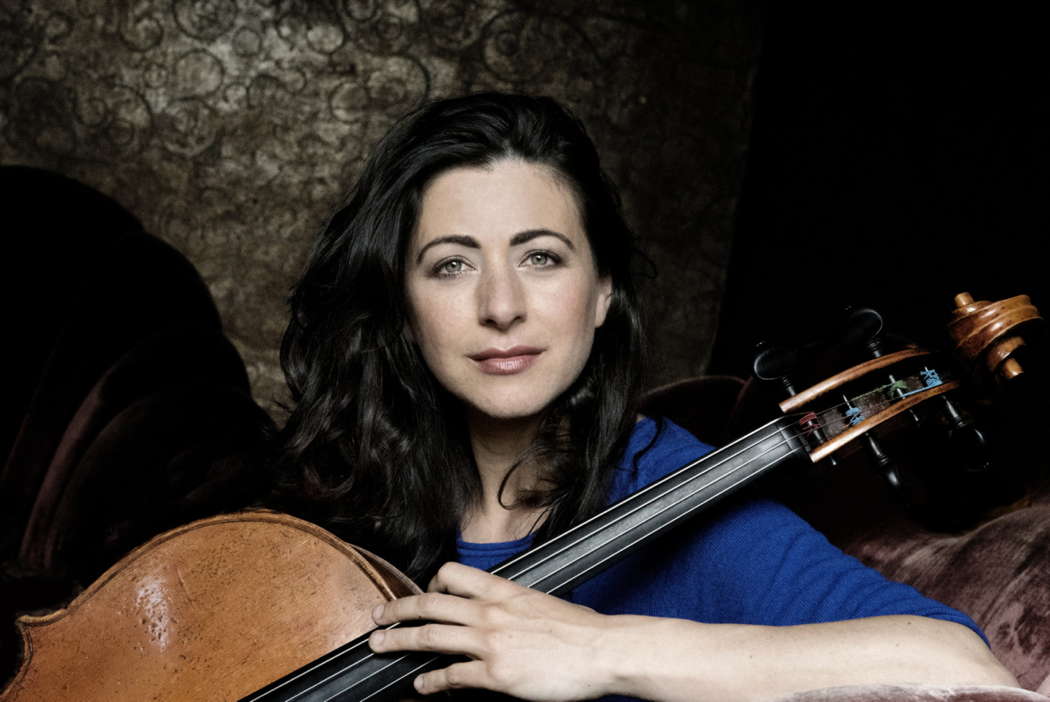
Natalie Clein
One of the most interesting musical developments of recent years is the way so many string players have begun exploring the use of a baroque bow in music of the period. Clein used one for J S Bach's Suite No 3 for solo cello. In her introduction she commented on the way it suggests different approaches to phrasing. It also seemed to change the actual sound of the instrument slightly, to something leaner and more focused.
After a freely-running account of the Prelude, Clein always kept in sight the fact that each movement is a dance. So the Allemande and Courante had a fine sense of rhythmic lift. The Sarabande was introspective but did not feel unduly weighed down. The two Bourées, especially the second, were positively foot-tapping, and there was an engaging sense of bounce to the concluding Gigue.
Bach's cello suites owe their place in the repertoire largely to Pablo Casals in the first instance, and the first of Clein's two encores acknowledged the link in a deeply-felt reading of his arrangement of the traditional Catalan 'Song of the Birds'. Then came more Bach, the Prelude to Suite No 1, in which Clein sometimes gave an agreeable rasp to the tone of her bottom string. It's nice to think that Bach would have enjoyed it.
Copyright © 12 August 2021
Mike Wheeler,
Derby UK



